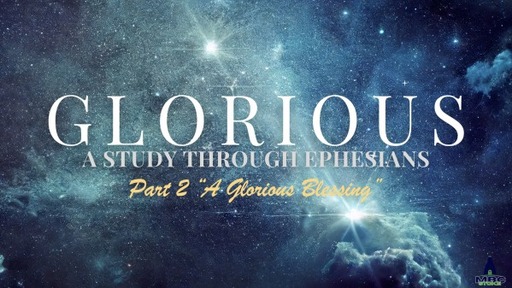Ephesians Pt2: A Glorious Blessing

Ephesians is the New Testament counterpart of the book of Joshua. Just as Israel’s blessings were found in Canaan, so ours are found in the heavenlies. Just as the Israelites had to battle many enemies in Canaan in order to possess all that God had promised them, so we have to battle Satan and his army in order to enter into all that is ours in heavenly places. Just as Israel’s inheritance in Canaan was fiercely contested by the foe, so our inheritance in the heavenlies is also strongly contested. Just as Joshua led God’s chosen people into victory, so Jesus leads us.
Moreover, we have all this “in Christ,” a major Pauline theme that expresses both union with Christ and the resulting membership in his body, the church. Some form of “in him” occurs in nearly every verse in this section, and this is a dominant theme throughout this letter. Everything we are and have is ours only “in Christ.”